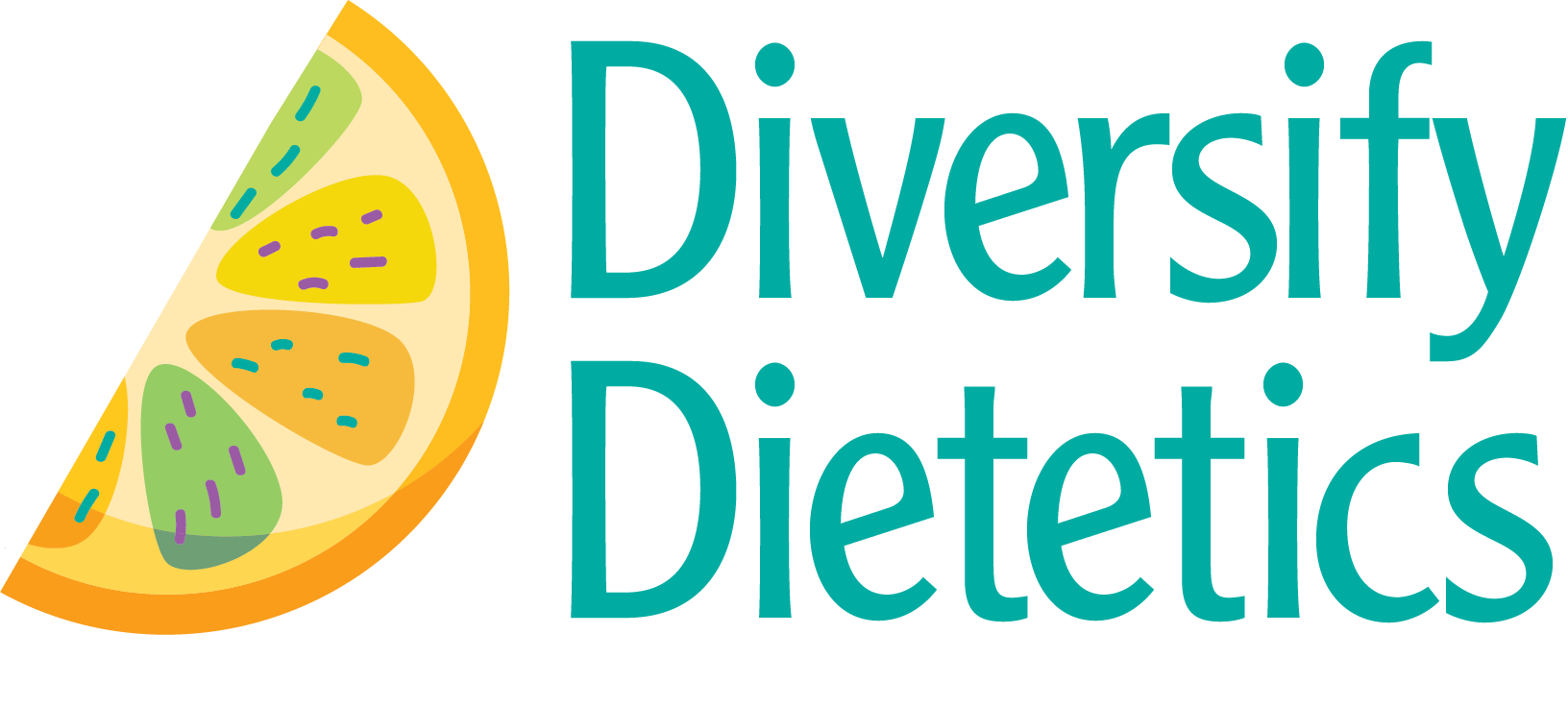RDN Spotlight: Esosa Osagiede, MPH, RDN, LD
What is your ethnicity/race? Did your family have any customs related to food?
African American and Nigerian/Black. Some customs related to food that we practiced were eating black-eyed peas for the New Year for good luck. To celebrate Benin Igue Festival, we’d typically eat a nice fish dinner, and eat some kola nut. Kola nuts are a symbol of healing, respect, hospitality, and unity. My favorite dinner was always that classic dinner/lunch after church: some type of protein, like fried chicken or pork chops, greens, mac & cheese, and sweet potatoes.
What does your typical day look like?
I wear many hats at this time. I work in corporate wellness where I work with different companies to create wellness incentive programs that include a monthly newsletter, lunch, and learns and quarterly challenges. I help the companies decrease their healthcare spending. I run my social media account, your.melanated.dietitian, work with clients in my academy, and I work for a bariatric clinic. On top of all of that, I do speaking engagements for universities as well as companies.
Where did you go to school and complete your dietetic internship?
Bachelor of Science in Nutrition (Dietetics), 2017 - Texas Woman’s University (Denton, TX)
Master of Public Health & Dietetic Internship, 2019 - Texas Woman’s University (Denton, TX)
Why did you decide to choose nutrition and dietetics as a career?
I decided to become a dietitian because I wanted to show other Black people that their food is healthy too. I wanted to be an example of what a healthy relationship with food, good health, while enjoying your cultural food could look like.
What was the biggest challenge for you in becoming a dietitian?
I have overcome chronic imposter syndrome. I would literally tell myself “I’m just a B-student.” And that’s exactly what I was. Keeping myself at that level made me feel safe from failing or being in the spotlight. I soon realized that telling myself that was not keeping me safe from failing, it was keeping me from reaching my full potential. I began to change the way I spoke to myself, I would gently push myself out my comfort zone by, asking for help from peers and teachers, and I joined organizations then took on leadership roles. It definitely wasn’t an easy “flip of a switch” transition but, I’m incredibly proud that younger me decided to do that work so I could live in my full potential today.
Have you had any mentors in your career? If yes how have those mentors affected your career/life?
I’ve had many mentors and a couple sponsors during my collegiate career. All of them taught me something that shaped the woman I am today. If I had to some up the things they showed me it would be: 1) my unique perspective is exactly what someone else needs for their break through, 2) no one will value what you bring unless you openly value it, 3) and failing at something is nothing to be ashamed about, but not trying and giving it all you got, will forever keep you stuck in and wondering “what if…”.
Why do you think diversifying the field of nutrition is important?
It’s important because a lot of the folks who need help don’t like the majority of this field. When people can see themselves in another dietitians experience or the food they eat, they begin to believe they to can lead a healthy lifestyle without stripping themselves of who they are. For example, me eating Nigerian meat pies on my story, leads somebody else to ask a question about if meat pies can be part of a healthy diet. I am in a position where I can educate them on the nutrients provided in meat pies and it helps takes away the shame and guilt from eating that cultural food. When my followers or clients see me and then see what I’m eating they feel more comfortable, asking questions about their cultural foods.
What is a piece of advice you would give a student of color interested in entering the field of dietetics?
Get ready to step outside your comfort zone. Becoming comfortable with being uncomfortable is the best thing you can do for yourself. Also, find your tribe as soon as possible. And remember that tribe can change over time. I believe people are in our lives for certain seasons, where we have to learn something or permanent figures.
Be sure to check out Esosa’s work and give her a follow her Instagram!
Do you know an RDN of Color who we should feature in our Spotlight Series? Or are you an RDN of Color who would like to be featured? Contact us today!

